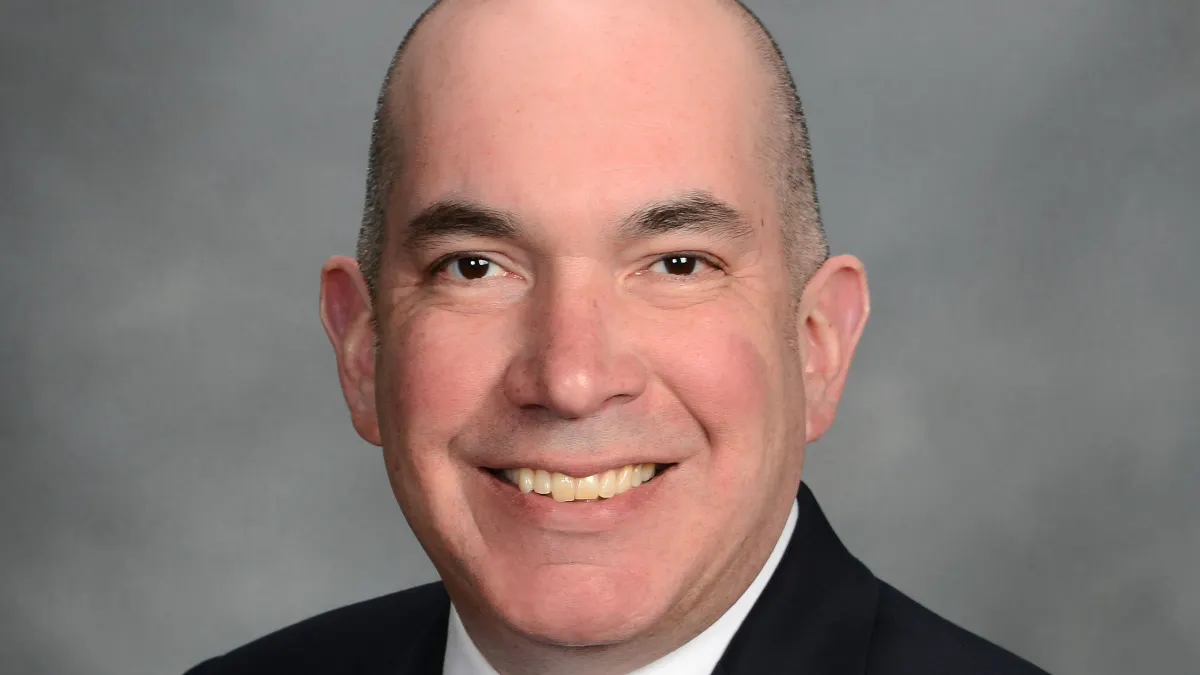As an attorney at a law firm representing biopharma industry clients early in his career, Roberto Cuca worked alongside finance leaders structuring licensing agreements and other collaborations. It wasn’t long before he knew that a corporate finance role would allow him to contribute more broadly than he might as a lawyer. So, just 10 years after receiving his Juris Doctor degree, Cuca earned an MBA in finance at The Wharton School and joined JPMorgan as an equity research analyst. In the 18 years since, he has served as finance chief at three organizations.
Since September 2021, Cuca has worked at TELA Bio, where he is chief financial officer and chief operating officer. TELA Bio develops tissue reinforcement materials for soft tissue reconstruction. The materials sometimes get thrown into the surgical mesh industry category, which has been hit hard with major class-action lawsuits.
Roberto Cuca
CFO and COO, TELA Bio
- First CFO position: 2013
- Attorney turned finance pro
- Previous employers:
- OraSure Technologies
- Endo Pharmaceuticals
- Trevena
- JPMorgan
- Morgan Lewis
This interview has been edited for brevity and clarity.
SANDRA BECKWITH: How did your background help you rise to the chief financial officer position?
Roberto Cuca: While working as a lawyer with smaller companies, I noticed that finance was involved in everything and that legal was often called in later than finance was. As part of the finance team, I could bring a helpful legal perspective to business situations earlier. This approach allowed me to contribute more directly to the company’s leadership.
How does your background affect how you perform your job as CFO?
Cuca: Because I have seen transactions from both legal and finance perspectives, I tend to get involved earlier and more directly in structuring deals. My ability to combine those roles and rely less heavily on outside counsel also helps us reduce legal fees. And, the inside counsels who I’ve worked with like to know they have somebody in the finance role who speaks their language and understands their concerns.
When I was working in FP&A settling a patent dispute with a generic competitor, for example, my legal experience helped me analyze the effect of different proposed settlement provisions, negotiate alternatives, and get us to an acceptable resolution. We’re looking at technology partnerships in my current position, so my ability to think through both the finance aspects and legal structuring helps us move more quickly.
It helps to have someone in finance who understands the typical progression and success probabilities of lawsuits and can think through settlements.
Why does your background particularly suit your industry?
Cuca: There are three main situations in the medical technology field where having a legal background helps. The first is litigation. It helps to have someone in finance who understands the typical progression and success probabilities of lawsuits and can think through settlements.
With intellectual property more generally, it’s about understanding the basic principles and the issues that can arise, along with their financial implications.
Finally, with contracts and transaction structuring, it helps to have been exposed to many different examples so that I can model out and contribute to drafting a final agreement suitable to both parties.
Does your background determine who you hire for your finance team?
Cuca: My FP&A experience influences this more than my legal background. You often see a CFO come from either accounting or finance. Because I’ve come from the finance side, I rely on highly competent accounting support — I have always worked with strong chief accounting officers or controllers.
What advantages does your professional background give you over other CFOs?
Cuca: For me, it’s less about having legal experience and more about having a diverse background in general. My work with different types and sizes of companies has helped qualify me for both my CFO and COO positions here at TELA because I’ve been involved in many of the operating functions that exist at any company. As for my early legal career, well, that’s time that another CFO could have spent in finance and accounting, which could give them a deeper knowledge and an advantage over someone like me.
Was becoming CFO always the goal?
Cuca: Looking for a way to contribute in a more significant way has always been a thread running through my career. Serving as CFO is an honor and a positive way to do that. I’ve had the good fortune to work with strong senior leaders who have been excellent mentors and role models; I’ve modeled my career pathway and contributions to the companies I’ve worked for on them.













